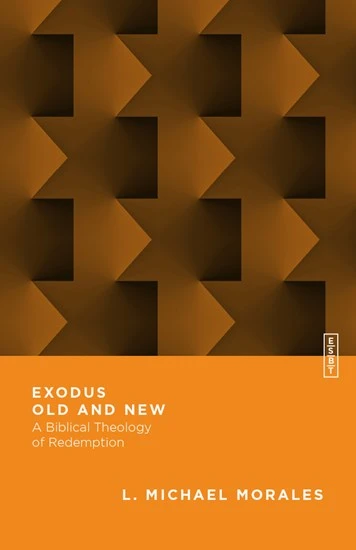
L. Michael Morales
Reviewed by: Cliff L. Blair
Exodus Old and New: A Biblical Theology of Redemption, by L. Michael Morales. InterVarsity, 2020. Paperback, 224 pages, $18.41 (Amazon). Reviewed by OP pastor Cliff L. Blair.
Can a book be both academic and devotional? The answer is yes, and Michael Morales’s Exodus Old and New is proof. This slim volume is a recent addition to the Essential Studies in Biblical Theology series that aims to introduce readers to basic themes of biblical theology. It is geared for the serious student of Scripture but is accessible to non-academics.
This is not a commentary on Exodus but an examination of the core idea of the exodus event across Scripture. At heart, the exodus is about redemption; about God bringing those exiled from himself home. In the introduction, Morales quotes another’s wonderful observation that “the exodus ‘is the only thing that ever happens’ in the Bible” (4).
The return to God finds its grandest Old Testament demonstration in the exodus from Egypt. Morales explores how that event—broadly and in many details—is woven into much of the Bible. Indeed, his examination of the theme begins in the history that predates the event. The introductory chapter presents Genesis chapters 3 through 11—from the fall through the flood to the Tower of Babel—as setting the stage for the “exodus” of nations, that is the worldwide return of humanity from spiritual exile to God.
This is followed by thirteen chapters in three sections: an examination of the historical exodus, of the prophesied second exodus, and these themes in the New Testament.
The historical examination includes chapters on the Passover, Moses, and the exodus as a slaying of the Sea Dragon (exploring the themes of evil represented in the serpent and the sea). Perhaps most fascinating is the first chapter which explores the exodus pattern in the life of Abraham who, obviously, predated the event. Morales writes: “As the first human being to experience a reversal of the spiritual exile narrated in Genesis 11, Abraham himself stands as the firstfruits of an international deliverance—the call out of Ur was, in other words, an exodus” (21). He then explores other exodus-like events in the patriarch’s life.
The prophetical section looks to the prophecies of the return from exile as a second exodus—indeed a greater and more glorious event than the first. Yet, the actual event fell far short: only a fraction of the people returned, the rebuilt temple was a shadow of the original, there was no Davidic king, and no outpouring of the Spirit, thus making “the return from Babylon . . . a subdued and tragic parody of the original exodus” (122). It is a disappointment that forces the eye forward to a greater exodus to come that will be centered on a new Moses-figure identified famously by Isaiah as the Servant of Yahweh.
The final section looks at the exodus themes of the New Testament with a chapter devoted to John’s gospel, another on the outpouring of the Spirit (the way by which believers join Jesus in his greater exodus), and a last chapter on the hope of the resurrection, the final exodus event.
The simple survey just outlined does not do justice to the book. As Morales draws connections between words, details, and images across Old Testament scenes and on to Christ in the New Testament, the reader, and perhaps the preacher in particular, is given fresh enthusiasm for the wholeness of the whole counsel of God. Are there connections or details where one may differ with the author? Of course, but the effect of the whole is to elevate not only our fascination and wonder in the Scriptures but in the God who saves and is bringing us home to himself in Christ. Highly recommended.
January 18, 2026
January 11, 2026
Texts that Transform: Church and Ministry
January 04, 2026
December 28, 2025
December 21, 2025
December 14, 2025
December 07, 2025
© 2026 The Orthodox Presbyterian Church